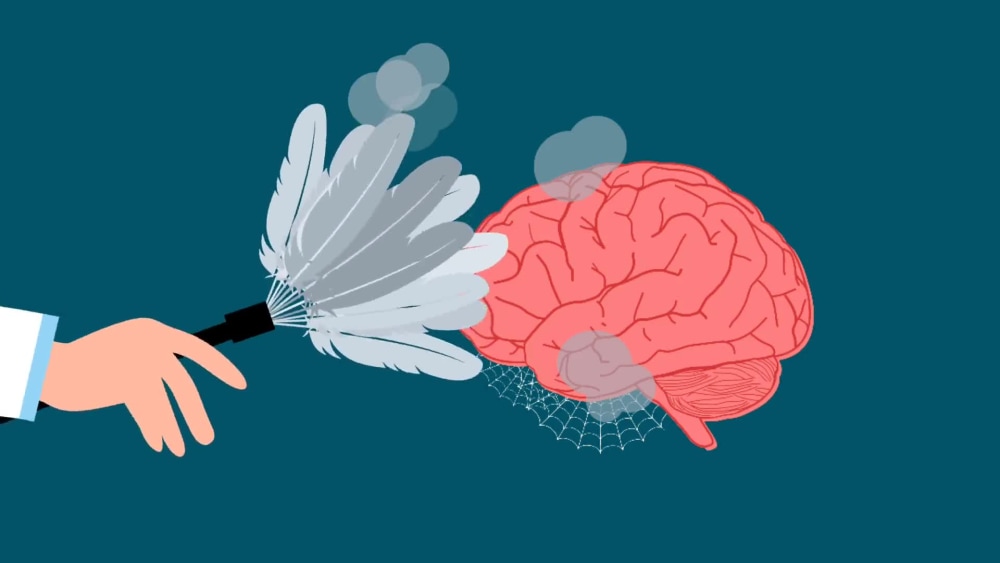In today’s fast-paced world, the importance of mental health has never been more paramount. Online self-help therapy has emerged as a beacon of hope for many, offering a convenient and accessible way to foster well-being from the comfort of our own homes. This comprehensive guide is designed to introduce you to the world of online self-help therapy, helping you understand how it works, the benefits it offers, and how you can leverage it to improve your mental health and quality of life.
Contents
Understanding Online Self-Help Therapy
 Online self-help therapy encompasses a range of digital resources and tools designed to assist individuals in managing and improving their mental health without the direct intervention of a mental health professional. This approach to therapy can include a variety of formats. However, the main premise behind self-help therapy is to empower individuals by providing them with the knowledge, strategies, and support they need to tackle their mental health challenges independently.
Online self-help therapy encompasses a range of digital resources and tools designed to assist individuals in managing and improving their mental health without the direct intervention of a mental health professional. This approach to therapy can include a variety of formats. However, the main premise behind self-help therapy is to empower individuals by providing them with the knowledge, strategies, and support they need to tackle their mental health challenges independently.
It’s an accessible solution for those who may be seeking privacy, convenience, or an adjunct to traditional therapy. The resources are typically based on well-established psychological principles and therapeutic approaches. However, it’s crucial to acknowledge that online self-help therapy is not a one-size-fits-all solution and may not be suitable for everyone. For those facing severe mental health issues or in crisis, it is recommended to seek immediate professional help.
Process Of Online Self-Help Therapy
The process of online self-help therapy involves several steps, designed to help individuals access, utilize, and benefit from digital mental health resources. Below is a detailed breakdown of the process:
Identifying Your Needs and Goals
- Self-Assessment: Begin by evaluating your mental health status and identifying specific areas you want to work on. This could involve assessing your mood, stress levels, thought patterns, or behavior.
- Setting Clear Objectives: Define what you hope to achieve through online self-help therapy. This could be reducing anxiety, improving mood, enhancing sleep, or developing better coping strategies.
Researching and Selecting Resources
- Exploring Available Options: Investigate the different types of self-help resources available online. Such as apps, e-books, websites, and online support communities.
- Checking Credibility and Effectiveness: Ensure that the resources are based on sound psychological principles and have positive reviews or testimonials from users.
Engaging with the Resources
- Active Participation: Dedicate time and effort to engage with the selected self-help tools regularly. This could involve reading articles, completing exercises, or participating in interactive modules.
- Practice and Application: Apply the strategies and techniques learned through the self-help resources in real-life situations.
Monitoring Progress
- Tracking Changes: Use journals, apps, or other tools to monitor your progress and note any changes in your mental health status.
- Adjusting Strategies as Needed: Be prepared to tweak your approach if you are not seeing the desired results. This could involve trying different resources or adjusting how you use them.
Seeking Support When Needed
- Connecting with Others: Consider joining online forums or support groups to share experiences and gain insights from others who are on a similar journey.
- Knowing When to Seek Professional Help: Be mindful of your mental health and recognize when it might be beneficial to consult with a mental health professional.
By following these steps, individuals can navigate the world of online self-help therapy effectively. Hence, making the most out of the available resources to support their mental health journey. It’s important to remember that while online self-help therapy can be a valuable tool, it is not a substitute for professional medical advice.
Finding The Right Resources To Help
 Finding the right resources for online self-help therapy can be a crucial step in your mental health journey. Here’s a guide to help you navigate through the plethora of options and select the tools that best suit your needs:
Finding the right resources for online self-help therapy can be a crucial step in your mental health journey. Here’s a guide to help you navigate through the plethora of options and select the tools that best suit your needs:
- Define Your Goals and Preferences
To start, it’s crucial to have a clear understanding of your specific mental health needs and the areas you wish to focus on. Reflecting on your personal goals will help guide your search for resources. Additionally, consider your learning style and format preferences.
- Research and Explore Options
Leverage search engines to explore the variety of self-help resources available online. Ensure that you critically assess the sources to avoid misinformation. Don’t hesitate to ask for recommendations from trusted friends, family, or professionals who might have valuable insights.
- Evaluate Credibility and Effectiveness
Check whether the resources are developed or reviewed by qualified mental health professionals, and look for tools that are rooted in evidence-based practices. This ensures that the strategies and information provided are reliable.
- Read Reviews and Testimonials
User feedback can offer a wealth of information about the effectiveness of a resource. Explore reviews, testimonials, and possibly success stories to gain a better understanding of how others have benefitted from the tool.
- Try Before You Buy
If the resource requires payment, see if there is an option for a free trial period. This allows you to evaluate the tool before making a financial commitment. Additionally, don’t overlook the numerous high-quality, free resources available online.
- Monitor Your Progress and Adapt
Keep track of changes in your mental well-being as you use the resource. If you are not experiencing benefits, be ready to adapt your approach and explore other options.
- Stay Informed and Updated
Continuously educate yourself about new and updated resources that could benefit your mental health journey. Participating in online communities can also provide additional support and recommendations.
By diligently following these steps, you can confidently navigate the vast landscape of online self-help therapy resources, finding the tools that resonate with you and support your journey toward improved mental health.
Common Challenges and Tips to Overcome Them
 Embarking on the journey of online self-help therapy can be empowering. But it’s not without its challenges. Being aware of potential roadblocks and having strategies to overcome them can enhance your experience and contribute to more meaningful progress.
Embarking on the journey of online self-help therapy can be empowering. But it’s not without its challenges. Being aware of potential roadblocks and having strategies to overcome them can enhance your experience and contribute to more meaningful progress.
1. Lack of Personalization
- Challenge: Online self-help resources are generally designed to cater to a broad audience. This can sometimes result in a lack of personalization.
- Tip: Seek out resources that offer customizable plans or assessments to tailor the content to your specific needs. Engage in interactive tools that adapt based on your input.
2. Overwhelm with Choices
- Challenge: The vast array of available resources can be overwhelming, making it challenging to know where to start.
- Tip: Start by defining your goals and areas of focus. Utilize curated lists or recommendations from trusted sources to narrow down your options.
3. Motivation and Consistency
- Challenge: Maintaining motivation and consistency can be difficult, especially without the accountability that comes from working with a therapist.
- Tip: Set clear, achievable goals, and establish a routine that incorporates your self-help practices. Consider enlisting a trusted friend or family member for support and accountability.
4. Technical Issues
- Challenge: Technical glitches, software issues, or lack of familiarity with digital tools can hinder your progress.
- Tip: Ensure your device and internet connection are reliable. Take the time to familiarize yourself with the platform or resource before fully diving in. Don’t hesitate to reach out to customer support if issues arise.
5. Limited Interaction and Feedback
- Challenge: The absence of direct interaction with a therapist means you may not receive immediate feedback or have someone to answer your questions.
- Tip: Utilize resources that offer community forums or Q&A sections. Consider supplemental consultations with a mental health professional if you need personalized guidance.
6. Difficulty in Measuring Progress
- Challenge: Without a professional to help assess your progress, it can be challenging to determine if you are making strides in your mental health journey.
- Tip: Regularly journal your thoughts, feelings, and experiences. Use self-assessment tools when available, and reflect on your progress over time.
7. Potential for Misdiagnosis
- Challenge: Self-assessment tools and resources may not be sufficient for a comprehensive understanding of your mental health, leading to potential misdiagnosis.
- Tip: Remember that online self-help resources are not a substitute for professional diagnosis. Seek professional help if your symptoms are severe or persist over time.
By being proactive and utilizing these strategies, you can navigate common challenges in online self-help therapy. Thus, create a more supportive, effective environment for your mental health journey.
Maximizing the Benefits of Online Self-Help Therapy
 Maximizing the benefits of online self-help therapy requires intention, consistency, and a proactive approach to managing your mental health. Here are strategies to help you:
Maximizing the benefits of online self-help therapy requires intention, consistency, and a proactive approach to managing your mental health. Here are strategies to help you:
Set Clear and Attainable Goals
Starting with a clear vision of what you hope to achieve sets the foundation for a successful journey. Define your objectives and break them down into smaller, achievable tasks. This approach not only provides direction but also creates a structured pathway forward.
Establish a Consistent Routine
Consistency is key in any form of therapy or personal development. By dedicating specific times for your self-help activities, you create a routine that fosters discipline and commitment. Ensure your environment is conducive to focus and reflection, providing you with the space you need to fully engage with the resources.
Engage Actively and Reflectively
Active participation amplifies the impact of self-help resources. Immerse yourself in the exercises, and take time afterward to reflect on your experiences. This reflective practice enhances self-awareness and helps to internalize the lessons learned.
Utilize a Variety of Resources
Diversifying your toolkit ensures a holistic approach to your mental well-being. Explore different types of resources and consider combining tools to address various aspects of your mental health. This varied approach prevents monotony and keeps your journey engaging and dynamic.
Track Your Progress
Keeping a journal of your thoughts, feelings, and progress provides a tangible record of your journey. Additionally, engaging with self-assessment tools can offer insights into your mental health, helping to track changes and identify areas for further attention.
Stay Committed and Patient
Recognize that progress in mental health is often slow and incremental. Stay committed to the process, even during challenging times, and cultivate patience as you work toward your goals. Remember that every step forward is a victory in itself.
Seek Feedback and Support
Engaging with online communities can provide a sense of support and shared experience. For personalized guidance or when in doubt, don’t hesitate to consult with mental health professionals. This additional support can provide clarity and direction, ensuring that you are on the right path.
Be Mindful of Your Limits
Online self-help therapy is a powerful tool, but it is not a panacea. Be aware of its limitations and know when to seek professional help. Recognizing the signs of when additional support is needed is a crucial aspect of responsible self-care.
By actively engaging with online self-help resources, you can maximize the benefits of this form of therapy. Remember that you are in control of your journey. And with the right strategies in place, you can unlock the full potential of online self-help therapy.
Conclusion
In conclusion, online self-help therapy stands as a valuable and accessible tool for individuals seeking to take charge of their mental well-being. By setting clear goals, establishing a consistent routine, and practicing self-compassion, individuals can maximize the benefits of this digital form of therapy. However, it’s crucial to recognize its limitations and seek professional support when necessary.
The journey to better mental health is a personal and ongoing process, and online self-help therapy offers a convenient and empowering avenue of self-discovery and improvement. If you are looking for affordable Online Therapy TherapyMantra can help: Book a trial Online therapy session


